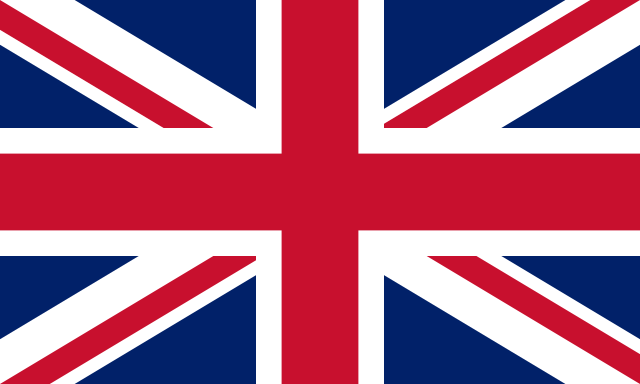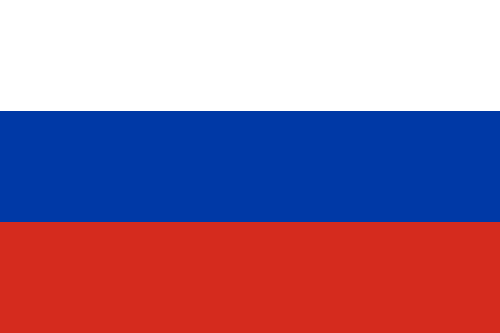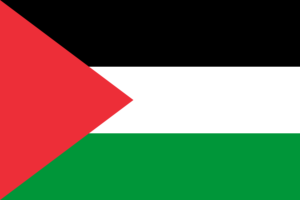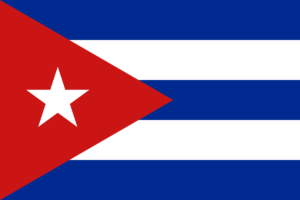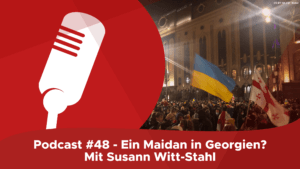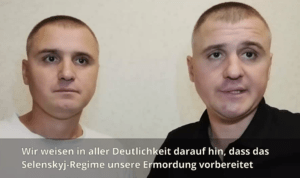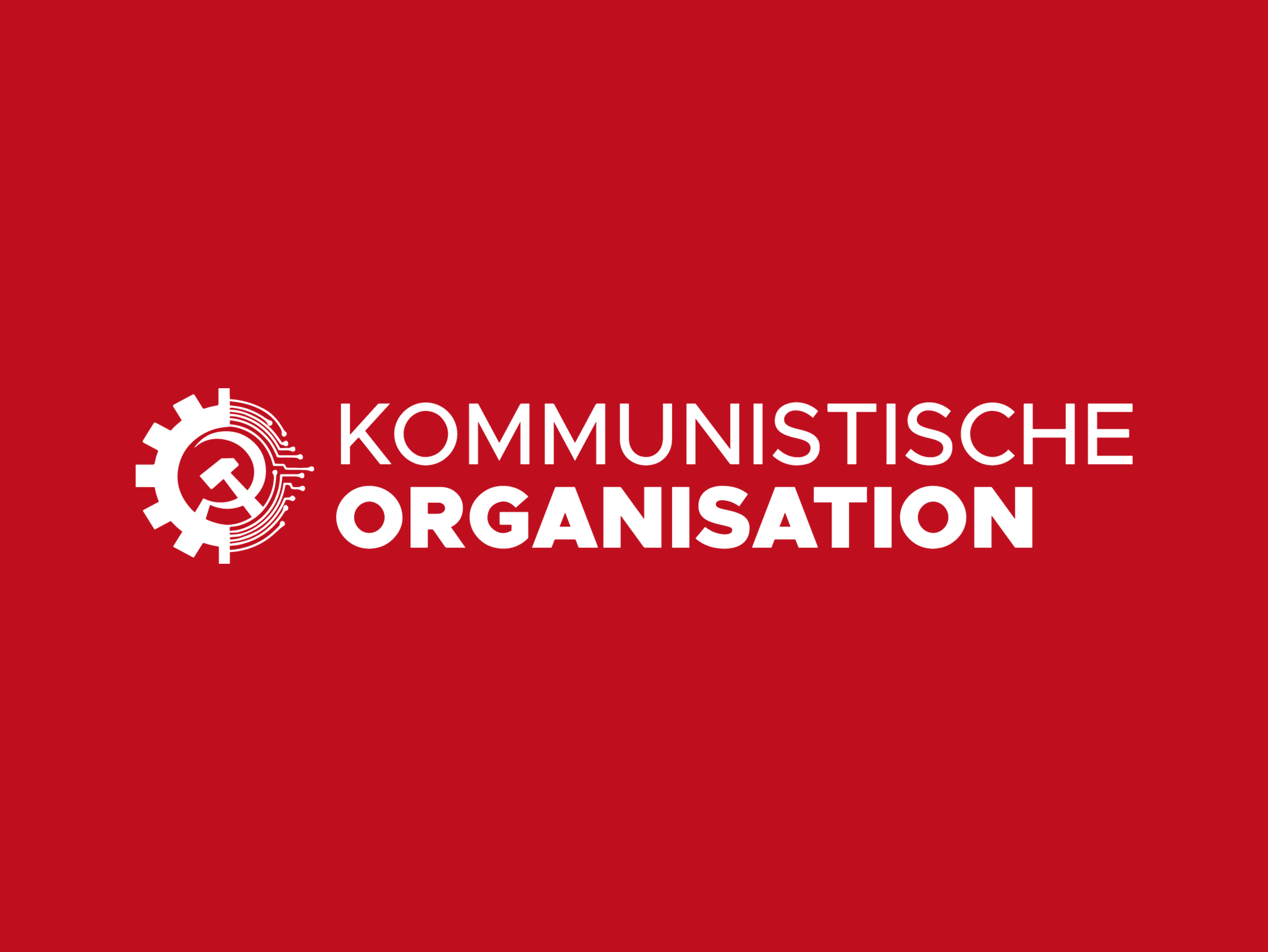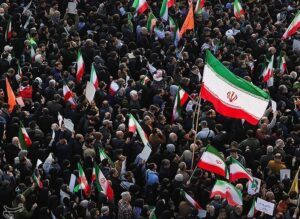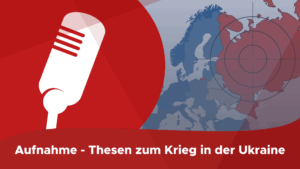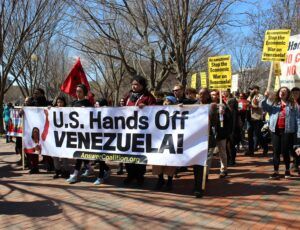Russia is resisting imperialism in Ukraine
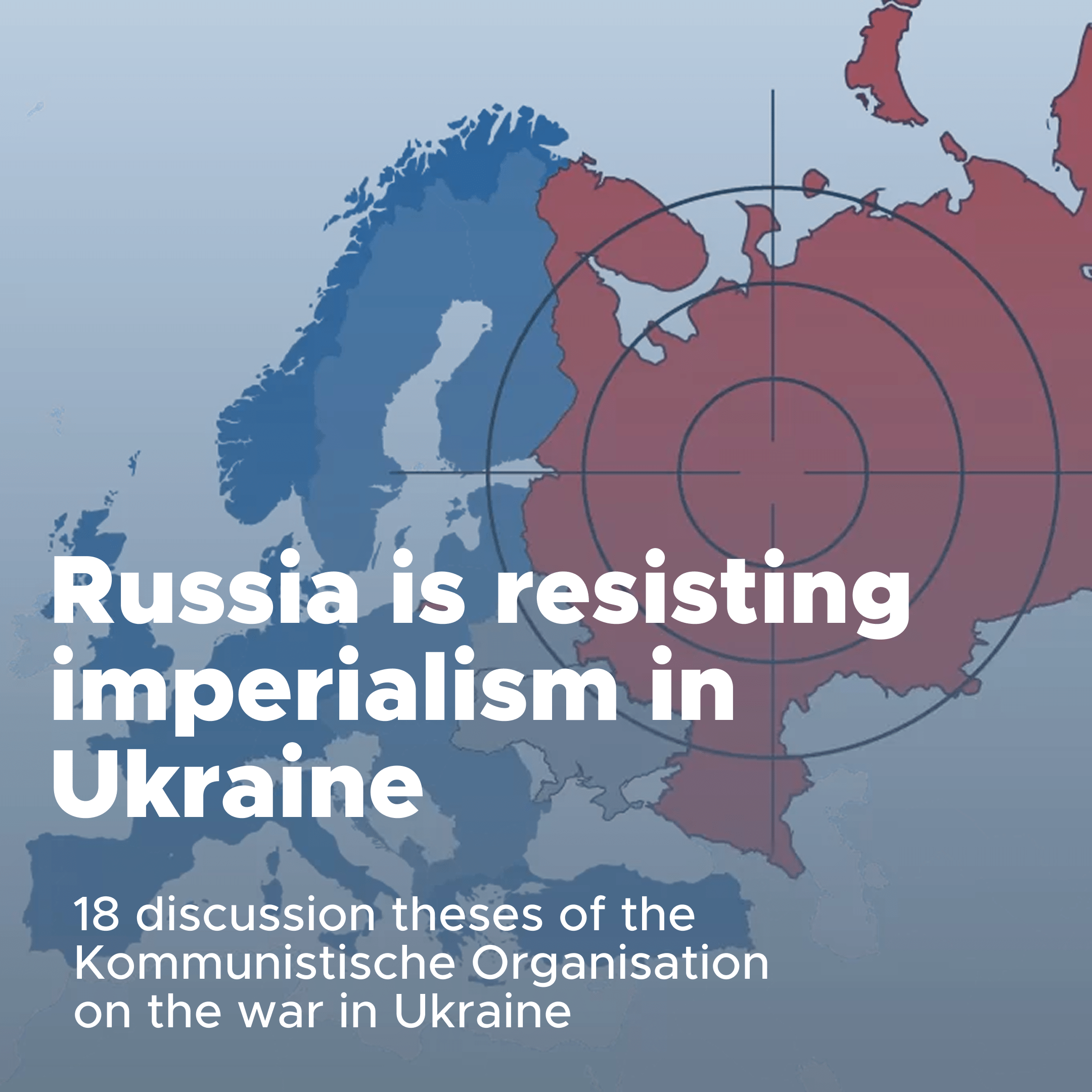
18 discussion theses of the Kommunistische Organisation (Communist Organization) on the war in Ukraine
Introduction
Immediately after the start of the Russian military operation in February 2022, we as the Kommunistische Organisation (KO) set ourselves the task of working on the urgent questions surrounding the war in Ukraine.[1] We worked on these questions in several working groups, the results of which we are publishing in stages. These theses are not a summary of these results, but rather formulate the central political insights we have gained.
More than two years after February 24, 2022, the initial wave of discussion in the communist movement has subsided and it seems that positions have been established, adjusted, or accepted. Nevertheless, we believe that there continue to be very different points of view and a great need for discussion and clarification, even if this need is rarely articulated.
These theses speak of NATO waging war against Russia, this also means that this war will not end with a possible deal in Ukraine. On the contrary, recent developments in Germany, the US, and the EU show that the great war against Russia is just being prepared. With historically unprecedented war credits and the open announcement that it intends to wage this war from 2030 onwards, German imperialism is clearly positioning itself to wage a war. The communist movement is therefore not facing a swift return to calm, but rather an escalation of the international situation. It will not be able to stop this escalation if it does not understand it or refuses to understand it.
These theses are put forward for discussion. They do not represent the final position of the KO. We still have many gaps, questions, and needs for clarification and discussion. Even within the KO, some points continue to be assessed differently, and there are many questions on which we need more information and analysis. With these theses, we are presenting an interim summary of our discussion and research process, which will be further deepened in order to sharpen our understanding or revise it where necessary.
The discussion theses are intended to contribute to a joint public debate. Anyone who would like to comment on or contribute to the discussion of these theses is welcome to contact us. We look forward to receiving your submissions.
The current situation and the problem of equidistance
War is the most terrible state in which human society can find itself. It leads to destruction and death, chaos and suffering. It is therefore all the more important to name and fight those who want war, plan it, and bring the world into it. These are NATO countries and, at its head, the US. There is no doubt about this if one looks at history and the circumstances surrounding the war without bias. When these theses state that Russia is resisting imperialism in Ukraine, it is it is because Russia is putting its foot down to NATO, the central source of war and destruction.
Anyone who looks at the world as a whole will have to agree that it is the NATO countries that are waging war not only in Russia and Ukraine, but also in Iraq, Libya, Afghanistan, Syria, and, in a particularly brutal manner, in Palestine. In numerous African countries, be it Congo, Sudan, the Sahel, or Kenya, the NATO countries are continuing their brutal policy of oppression and destabilization. However, these undeniable facts are being covered up, concealed and distorted, especially in the central NATO countries.
The US and the Federal Republic of Germany have established a fascist regime in Ukraine that is capable of and willing to wage war against Russia and has been armed and made dependent on them. Swoboda, Right Sector, and other fascist, deeply anti-Semitic, and anti-Russian organizations were bred and brought to power with the Maidan coup in 2014 in order to build a state that would wage war against Russia.
These theses are by no means directed against Ukraine – on the contrary: we stand for the anti-fascist liberation of Ukraine from the Bandera fascists put in power by NATO. This is the prerequisite for the Ukrainian and Russian nations to be able to live together peacefully again. When NATO officers, CIA agents, and think tanks are expelled from Ukraine, when the Bandera ideology and its fascist terror are defeated, people will be able to live together peacefully again.
NATO is continuing its aggression and has begun to attack Russian heartland with long-range missiles. The communist movement is ill-equipped to deal with this situation. Equidistance, i.e., treating NATO and Russia as equals, not only prevents recognition of this reality, but also prevents consistent intervention.
While the formula of “Russia’s war of aggression in violation of international law” has served to integrate social democracy into the war camp, the position of ‘inter-imperialist war’ prevalent in the Communist movement allows for a passive stance while maintaining revolutionary rhetoric for the Communist movement. It allows such communists to continue to agitate against NATO in words but essentially serves to cloak an opportunistic position in seemingly revolutionary phrases.
Who is the aggressor and who is the victim in a war is by no means a secondary question. For the propaganda of the ruling class, terming a country as the aggressor is central to justifying their armament and war policies. It is easier to accept that a country that has been the victim of aggression must then be supported. That is why it is criminalized to argue that Russia’s attack are actually justified. It is therefore one of the crucial questions of propaganda, of ideological class struggle, and thus a crucial question for communists.
For communists, however, there is more at stake than just the question of what or who triggered the war. In the theory of scientific communism, war is understood as the continuation of politics by other means (in reference to Clausewitz’s work “On War”). This implies that depending on which politics are being “continued,” war may also be considered just under certain circumstances.
The decisive factor for this assessment is the relationship between the objective political content of war and the concrete historical interests of the working class. However, since their struggle as a revolutionary class includes the struggle for democracy, national independence, and peace, it is not only a revolutionary war under working-class leadership that is just. National liberation wars or anti-fascist wars led by national bourgeoisies can also be just wars, as can civil wars against reaction and counterrevolution involving a wide variety of forces.
Outline
The theses begin with a general assessment of the historical situation, the development of imperialism, and why the struggle for the national question, the right of peoples to self-determination, is the central struggle in which the working class must take the leading role.
The second part deals with the classification of the war in Ukraine in the context of national war and class relations in Russia and beyond.
The third part deals in more detail with the historical developments in Russia, Ukraine, and the People’s Republics of Donbass in order to understand more concretely how the Russian Federation came to its decision.
The fourth part examines the role of German imperialism in the Ukraine war and the tasks that arise from this role for the communist movement.
Criminalization and repression
The Federal Republic of Germany never developed into a particularly democratic state. From its inception, it has been a bulwark against socialism, communists, and any progressive development. In some phases, this may have appeared somewhat differently, but political persecution and comprehensive lies and propaganda have been carried out consistently. Currently, dissenting positions on the Ukraine war are being prosecuted under the rubber-stamp of section 140 of the criminal law which prosecutes the act of endorsement of any criminal offenses. It is perfectly clear that this is intended to criminalize any position on the war that differs from the official line.
While the neutral slogan “Neither Putin nor NATO” is unlikely to make any enemies, the Federal Republic of Germany is exerting enormous pressure on opponents of the war who explain the reasons why Russia is waging this war and also explain how these reasons are legitimate. That alone speaks volumes.
Condemning Russia is a safe bet for a ticket to joining the ruling discourse – no matter how radically opposed to NATO one claims to be. But this is also where the limits of what can be said and the limits of freedom of expression end. Those who do not bow to the shibboleths of German propaganda face charges, smear campaigns, and court cases. Those who dare to continue to take a fundamentally oppositional stance on this issue can no longer be sure of their fundamental rights. The situation is similar when it comes to solidarity with the Palestinian people’s struggle against Zionism and imperialism.
We insist on our fundamental right to freedom of expression and we are prepared to defend it. The cheap attempt to accuse us of condoning actual or alleged war crimes is baseless. But if the statement that Russia had good reasons to act as it did is to be made a criminal offense, then that means that only the view of the federal government (“war of aggression contrary to international law”) is permissible. That would clearly be an admission of discursive bankruptcy.
In these theses, we will not be able to cite all the facts and assessments of international law experts. That is not the purpose of these theses. They are intended to serve as a basis for discussion within the communist movement.
The politicians who installed and supported the fascist Maidan regime, including its brutal war against its own people, and who have started a war against Russia, sending tanks and training soldiers, should be sitting in court. They are the same people who aim to send our children to war and make our country “Kriegstüchtig” [fit for war]. Have we not learned this from history? Should they also not know from history that they will be held accountable for this?
Theses in short form
- The struggle for national self-determination of the vast majority of peoples is in contradiction to the imperialist rule of a few powerful states that have historically established and shaped imperialism.
- The struggle for national self-determination and its link to socialism is the challenge facing the working class and oppressed peoples.
- In the era of imperialism, national wars against (neo-)colonization and oppression, as well as against annexations and aggression, are on the rise. Every war must be subjected to a concrete analysis; it is wrong to blindly impose the conditions of the First World War on current conflicts.
- The national self-determination of Russia and China is in the crosshairs of imperialism. They are to be eliminated as political actors and possible allies for oppressed states in their defense against imperialist aggression. The strategies of the imperialists to combat these states are in part contradictory.
- A fascist regime has been established in Ukraine to turn the country into a spring board against Russia and threaten Russia’s national existence from there.
- The masses took the initiative against NATO fascism. They pushed it back in eastern Ukraine and founded the People’s Republics. In doing so, they defended the anti-fascist legacy of the Great Patriotic War.
- Russia’s military operation serves to defend national sovereignty and the People’s Republics. The operation does not aim to exploit and subjugate Ukraine, but to defend itself against imperialist aggression.
- The working class is the consistent representative of the struggle for national self-determination, while the national bourgeoisie is a fickle ally. The communists are at the forefront of the struggle.
- Russia’s struggle against NATO is an important struggle against imperialist rule and serves the liberation struggle of other oppressed peoples. The international front against imperialism is being strengthened.
- After the phase of economic destruction and political humiliation in the 1990s, Russia has since been on a course of strengthening its national independence, which NATO is determined to halt by any means necessary.
- The destruction of Russia’s economic, political, and military power is intended to set a world-wide example to eliminate any resistance.
- With the Maidan coup, the arming of the Kiev regime, and the increased military threat from NATO, Russia was pushed into a corner and forced to launch a defensive counterattack in order to avoid a militarily hopeless situation.
- Germany is using the war against Russia as an opportunity to arm itself and strengthen its own power. At the same time, it is under pressure from the US and is being economically squeezed. In any case, German imperialism has its own interest in subjugating Russia.
- In order to rally social forces against NATO’s war against Russia and, in particular, against German war policy, a clear and unambiguous analysis and political strategy is needed that counters the ideology of “equidistance.”
Part I: The historical context of the situation
1st Thesis: International counterrevolution
With the victory of the imperialist NATO bloc over the USSR, a phase of international counterrevolution against all progressive forces in the world began. The US was able to assert itself at the head of the imperialist camp.
In the course of the international class struggle against the socialist world system, a camp has emerged that is organized under the US as the leading power. It continues to exist today and has dominated the “world order” since 1990. There are contradictions and competition within this camp. This is illustrated, among other things, by the various strategies for containing and subjugating Russia and China. A prerequisite for its stability is that the various imperialists benefit from this world order.
The international balance of power has shifted sharply in favor of imperialism as a result of the collapse of the socialist world system, primarily because imperialism has a centralized military command and economic power structures at its disposal. With institutions such as NATO, regional command structures such as AFRICOM and many others, but also the World Bank and the International Monetary Fund, the imperialist camp has been able to impose its dictates on the rest of the world. Many states lost important gains in their ability of self-determination, for which they had to struggle and fight even in the period after formal independence.
The counterrevolution was followed by wars against states that stood in the way of imperialism, were of strategic importance or stood against subjugation and oppression. Without the former protective power of the Soviet Union, such states could now either be economically blackmailed or bombed into submission for the sake of finding new markets and areas of expansion for profitable capital accumulation.
However, since 2007/08, imperialism has been in a deep economic crisis, which could not be overcome with conventional instruments. The severe crisis of overproduction and falling profit rates in the imperialist countries on the one hand, and the economic rise of China and its growing international role on the other, are the main reasons why Western hegemony has landed in a historic crisis. The imperialist countries are forced to push for war in order to conquer new markets and break all forces that attempt to defend their national sovereignty against imperialism.
2nd Thesis: Contradiction between imperialism and national self-determination
Imperialism stands directly opposed to the national self-determination of many peoples and must prevent, deform, or only grant it in appearance as far as possible. The national self-determination of previously colonized countries (Cuba, China, Vietnam) or countries threatened, attacked by and resisting imperialism after the revolution (Russia/Soviet Union) have been an important part of the struggle of the socialist countries against imperialism. The struggle for self-determination has come to the fore and currently represents the main stage of the political struggle of the oppressed peoples and classes.
Although the socialist world system has been largely destroyed, the contradictions of imperialism have not disappeared. It must plunder entire countries economically, blackmail them militarily, and oppress them politically in order to maintain its position of power. Due to the economic crisis, the pressure to maintain this power relationship by all means is increasing. The old imperialist colonial system was smashed by the liberation struggles of the oppressed peoples. As a result, the US and its allies established the system of neocolonialism, which was intended to enforce formal independence while increasing economic dependence and military threats against the newly liberated states. Those who resisted neocolonial subjugation had to reckon with aggression and war before 1990 and continue to do so today.
Economically and politically, the imperialist countries dominate the international division of labor and subordinate it to their reproduction process. Workers in underdeveloped capitalist countries are exploited and the wealth they produce is siphoned off to the ruling monopolies. The largest monopolies have subordinated the economies of less developed countries to their accumulation regime. Politically, this is followed by the subordination of less developed countries to the dictates of the leading imperialist states. Imperialism exerts massive influence on the conditions of economic and social development, on trade and financial policy, and on much more. In a comprehensive sense, the interests of the leading monopolies assert themselves and further restrict the self-determination of countries and the possibilities of class struggle.
Independent economic development is undermined in many ways, and development disparities and dependence are perpetuated. For the oppressed peoples, national self-determination means a struggle against economic and political influence by foreign imperialist states and for the independent determination of their living conditions. This is the connection between the struggle for social self-determination and, ultimately, the struggle to eliminate capitalist exploitation on the basis of combating political control and foreign domination by imperialism.
This national question is also of existential importance for large countries that have become economically and militarily strong, such as China and Russia, because imperialism threatens them as well. This is not only a question of their economic exploitation and oppression, but also of neutralizing them as political subjects, as independent actors who can potentially act against the imperialist powers.
3rd Thesis: The central challenge of the working class
Historical development shows that the working class must play a decisive role in the struggle to defend national self-determination and social progress, as well as to defend the interests of the oppressed countries against imperialism. Even if the working class is not in power, or not alone in power, in most countries at present, it is nevertheless already the social factor that must fight hardest against subordination to imperialist rule.
This decisive historical process does not proceed without contradictions between the classes in the oppressed countries and without the necessity of the working class asserting itself. The class struggle against the bourgeoisie of the non-imperialist countries is therefore not abolished, but exists in a historical context in which the achievement or defense of national self-determination will depend on the political strength of the working class.
Neocolonialism and the related question of the struggle for national liberation as an anti-imperialist struggle and its connection to the struggle for socialism have always been an important part of the communist movement’s theory and practice. Views that see the current conflicts as the result of the “rise” of new imperialist states ignore this contradiction and declare it a relic. The common struggle of the working class of the imperialist centers and the oppressed peoples against their common enemy is denied, thereby negating an essential foundation of proletarian internationalism. They do not understand the task of the working class in this phase of the struggle.
4th Thesis: The significance and determination of national and just wars
The assumption that, in the era of imperialism, national wars can no longer exist due to the formal independence of states is false. Wars waged by colonies or semi-colonies against imperialist states, as well as those waged by threatened or oppressed states against imperialist aggression, are just wars of national liberation.
The course of world history is contradictory; therefore, a concrete analysis of the concrete situations is a prerequisite for understanding how the lawful development of history from the lower to the higher occurs. Since the imperialist governments had justified the First World War with “defense of the fatherland” and thus national defense, and opportunistic social democrats had taken up this propaganda to conceal the imperialist character of the war, some Marxists came to the wrong conclusion that there could in principle be no more national wars in the imperialist era.
Especially in his text “On the June Brochure” (Lenin Works, Volume 22, p. 310 ff.), Lenin deals with Luxemburg’s argument that there could be no more national wars and argues that history is contradictory: “Thirdly, even in Europe, national wars cannot be considered impossible in the era of imperialism. The ‚era of imperialism‘ has made the present war an imperialist war; it will inevitably (as long as socialism does not come) produce new imperialist wars; it has made the policy of the present great powers thoroughly imperialist, but this ‚era‘ by no means excludes national wars, e.g. on the part of small (let us assume annexed or nationally oppressed) states against the imperialist powers, as it does not rule out large-scale national movements in Eastern Europe either.” (ibid., p. 316 f.)
Lenin points out that national wars can turn into imperialist wars and vice versa, and that this is precisely why a concrete analysis of the concrete situation and its development is necessary. Looking at developments since the First World War, it is clear that, for example, the war against fascist Germany and its occupation of France led to a national war by France as an imperialist country against Germany. The rule of the imperialist camp led by the US since 1945 has led to numerous national wars against its aggression and threats. Russia’s military operation is a special war in this series, as it is being carried out by a larger military power, but this does not change the character of the war.
Part II: The Ukraine War from the perspective of national war
5th Thesis: Russia and China in the crosshairs
Subjugating Russia and China is a prerequisite for maintaining the imperialist order. A driving force behind imperialist policy is the contradiction between the growing sovereignty of Russia, China, and other states and the imperialist countries‘ claim to world domination. This front against the oppressed peoples is in the common interest of the imperialists.
The increasing ability and willingness of Russia and China to defend themselves and set limits to imperialist aggression goes hand in hand with various trends that are diametrically opposed to imperialist rule. These include independent relations between oppressed states, an alternative monetary system, the development of productive forces, industrialization of these countries, and scientific and technological progress—in short, social and economic development and the independence that this brings. These trends are currently in a contradictory and early stage.
Russia and China are therefore in the crosshairs of the imperialist camp’s aggression. With the war in Ukraine, we have already entered the phase of “decisive battles” for the maintenance of the existing imperialist order. The war in Ukraine is thus both an expression and, given NATO’s failure so far, an accelerator of the decline of imperialism.
The course of events has brought Russia into a stronger and more unified position against the imperialist countries. The aggression of the imperialists is itself the central driving force behind the more unified formation of its opposing forces. Even if Russia is not a socialist state, the maintenance of its national independence means a strengthening of the forces opposed to the interests of the imperialist camp.
6th Thesis: National War for Self-Determination
Armed Ukrainian fascism has always been an aggressive force in the struggle against the Russian nation and in the war against the Donbass Republics. Communists in Ukraine and Russia are pushing to turn the anti-fascist character of the war into a consistent anti-fascist war, as they see the fight against fascism as a national necessity for both Russia and Ukraine.
Russia is waging a national war that is now directly aimed at years of imperialist aggression. With its military operation, Russia is responds to the threats to its security interests. This includes supporting the anti-fascist liberation struggle of the Donbass republics and, beyond that, pushing back NATO and its war of attrition in Ukraine.
This makes the Russian military operation the first war in a long time waged by a major military power against imperialist oppression—which makes it historically significant.
Due to the economic aggression in the form of an expanded economic war, the open and covert warfare waged by NATO and Ukraine against Russia since 2014, and the ideological aggression in the form of nationalist and racist propaganda, Russia saw no alternative to this military operation.
To date, there are no signs that Russia is seeking violent domination and exploitation of Ukrainian territory with this operation. The military conquests are deliberately limited to the east and south of Ukraine. Their goal is to end Ukraine’s role as a spring board against Russia in military, infrastructural, and political terms and to liberate it from the fascist terror of the Kiev regime. Its main goal is not the political subjugation of Ukraine. The purpose of the war is not the economic exploitation of Ukrainian labor and means of production. Even after the start of the military operation, Russia accepted Ukraine’s accession to the EU, including economic integration into the EU. However, it did not accept NATO membership.
7th Thesis: The anti-fascist resistance in eastern Ukraine as the vanguard of the struggle for self-determination
The resistance against the fascist coup of 2014 that began in eastern and southern Ukraine was the courageous vanguard of the struggle for self-determination. The masses of the people took the initiative and opposed the fascist offensive of the Kiev regime. At great sacrifice, they defended their right to self-determination and the anti-fascist legacy of the Great Patriotic War, thereby posing a powerful obstacle to the expansion of the NATO-Bandera regime. Their recognition and protection, as well as the military operation, are fully in line with the will of the masses.
The establishment of the People’s Republics of Lugansk and Donetsk represented the culmination of this struggle. This not only protected part of Ukraine from fascist encroachment, but also raised the struggle to a higher political level and gave it the significance it deserves: as an anti-imperialist and anti-fascist struggle. This action by the masses also represents a decisive turning point in terms of the necessity for action by the Russian Federation.
The US-led regime in Kiev has always sought to destroy the People’s Republics and thus eliminate all resistance, but it has failed. NATO’s arming of the Kiev regime against the anti-fascist republics was a direct preparation for war against Russia.
The recognition of the People’s Republics and their protection by the Russian Federation correspond to the declared will of the population of the People’s Republics, which they have repeatedly expressed clearly. It came far too late. Russia’s military operation is the continuation of the anti-fascist struggle of the People’s Republics and is completely in line with the will of the masses – in no way contrary to it.
8th Thesis: The Russian working class as the consistent representative of the national question
Russia’s bourgeoisie is an unreliable and fickle class factor because it always has its own capital interests in mind and is prepared to betray the national question. The working class is the only class that will consistently stand up and fight for the defense of national sovereignty. It must therefore be strengthened. Its interest lies in a consistent anti-imperialist revolution toward socialism. This can only be achieved by strengthening the Communist Party. Although the national and anti-fascist war is only a strategic stage in the political-military liberation struggle of the working class, it is at the same time a prerequisite for and part of the class struggle. It is therefore in the immediate interest of the Russian working class and its fascist-ruled and NATO-war-wasted Ukrainian class brothers and sisters.
A NATO victory would also mean a victory for Ukrainian fascism. The subjugation and exploitation of Ukraine would go hand in hand with renewed oppression and exploitation of Russia by imperialism. The international balance of power would shift in favor of imperialism.
Russian communists have long pursued a course of national defense, which they see as both a prerequisite for and a possible transition to socialism. The measures necessary for effective defense open up opportunities for changes in property relations and for the suppression of the bourgeoisie, especially its collaborating sections. In this way, the class struggle can be decisively advanced toward socialism.
It is in the interests of the Russian working class to utilize the revolutionary potential of this national and anti-fascist war. To do so, it must assert itself as a decisive political factor in favor of consistent national defense and consistent anti-fascism against its class enemies. After the period of subjugation and plunder of Russia in the 1990s, the working class knows what it has to lose.
The national bourgeoisie clearly has an advantage from the measures that have been implemented. It has consolidated its political influence and expanded its sphere of activity. At the same time, the process of Russia’s national independence has also brought progress to the masses. These gains are now being defended by Russia’s military operation. The fact that the working people in the cities and countryside no longer have to endure the old double yoke of domestic and foreign exploiters is changing their conditions of existence and, at the same time, the conditions of their struggle for economic and political power, which is easier to wage in an independent state than under the whip of foreign monopolies and exploiters.
For the Ukrainian working class, the military operation will decide whether they will continue to be bled dry as NATO’s battering ram, while all working-class organizations are either banned or severely restricted. The defeat of imperialism and fascism in Ukraine is also in the interests of the working people of Ukraine. NATO stands in the way of a peace process, as it wants to enforce this policy of subjugation and aggression by any means necessary.
9th Thesis: Strengthening the international front against imperialism
The defeat and weakening of the aggressive NATO bloc in the war against Russia meant the retreat of imperialism and a shift in the international balance of power. This opens up scope for progressive and anti-imperialist forces. This character and the resulting international developments must be recognized and taken up by the communist movement worldwide in order to show that Russia’s military operation is in the interests of the liberation of the working class and oppressed peoples worldwide.
Among other things, the international working class can overcome its divisions between the imperialist countries and the oppressed countries through the military operation. Developments in the Sahel, Palestine, and Yemen, as well as the BRICS alliance in general, highlight the contradictions that have been intensifying globally since Russia’s military operation. The warring imperialist governments are increasingly feeling discontent and rejection of their arms race and war policies, while the oppressed peoples are rising up against their subjugation.
Ever more open rifts are appearing between the oppressed peoples and the imperialist centers. It is in the interests of the global working class and the oppressed peoples to contribute to the defeat of this imperialist war machine, to increasingly lead it and strengthen it with communist positions.
Part III: On the historical developments in detail
Russia’s character and development
10th Thesis: Struggle for independence and sovereignty
With the counterrevolution in the USSR, Russia was subjugated to imperialism and reduced to the role of a raw materials supplier and sales market. Since the beginning of the 2000s, Russian policy, both in economic and domestic terms and at the international level, has been increasingly directed against this political and economic subjugation by imperialism.
The capitalization of the Soviet economy led to the destruction of the existing production relations throughout the former USSR. This in turn caused the decline of the now Russian economy, which led to capital flight from Russia. As a result, a bourgeoisie emerged that accumulated its capital mainly abroad and therefore had no interest in Russia’s national capitalist growth. In addition to this sell-off of production, another trend emerged: the takeover of control over the profitable raw materials sector by foreign capital. It is therefore a mistake to claim that the privatized large enterprises and banks of the former Soviet Union were transferred to national monopolies or financial capital that merged with the Russian state.
In the wake of this economic decline and sell-off, Russian capitalism developed a growing dependence on the capitalist world market of imperialism. This dependence enabled the institutions of imperialism to impose their political agenda on Russia. Specifically, Russia was reduced to the status of a supplier of raw materials and an investment location for foreign capital. The profits of this capital were siphoned off from the country and accumulated in the currencies of the imperialist countries.
Against the backdrop of these dependencies, Russia is now pursuing an economic policy aimed at greater state control over strategically central key industries and banks. This control, in turn, is intended to create the conditions for import substitution and diversification of exports.
The necessary prerequisite for this agenda, which is fraught with contradictions, is therefore not the expansionist extension [1] of Russian capital in the medium term, but the consolidation of Russian capitalism through a stronger detachment from imperialism. Contrary statements by certain Russian politicians and thinkers, as well as possible developments in the distant future, do not change this current objective situation.
Russia demands that its right to independence be recognized. Thanks to the military resources it inherited from the USSR, it is in a position to enforce this right. Imperialism has responded to this demand with encirclement and threats and, since 2014, with support for an armed conflict in Ukraine.
11th Thesis: Violation of the “world order”
With its military strength and its desire to overcome its own dependence and subordinate role in the international division of labor, including in material terms, Russia poses a challenge to imperialism—because it is shifting the global balance of power in a way that has not been seen since the counterrevolution. Consequently, the imperialist countries are now fundamentally concerned with destroying Russia’s means of power and its political ambitions through comprehensive military and economic warfare on the one hand and political destabilization on the other. This destruction is also intended to set an example for other counterforces to the imperialist order.
With its agenda of proletarian internationalism, the Soviet Union supported national and anti-imperialist liberation movements. With its material resources, it was thus able to be a significant factor in the power struggle between the working class and imperialism. Specifically, it was able to provide material support to liberation movements on the one hand and, on the other hand, set limits to imperialism’s suppression of these aspirations and offer an alternative system of economic integration.
A military strike is the last resort for enforcing one’s own interests. With Russia’s military intervention, the contradiction takes on a new form for imperialism and, in contrast to previous independence efforts by smaller states, Russia’s actions are seen as the ultimate violation of imperialism’s world domination. The complete destruction of its material, i.e., military and economic, means of power and the bringing about of a pro-imperialist political upheaval in Russia are therefore necessarily the strategic goal of imperialism. The failure of these plans is therefore in the objective interest of the struggle against imperialism worldwide.
The development of Ukraine into a springboard against Russia
12th thesis: Ukrainian fascism as an instrument of the West
A decisive condition for the development of Ukraine into a military springboard against Russia was and is Ukrainian fascism, both as a movement and as a state power. Ukrainian ultra-nationalists and fascists were and are the most important allies of the Western imperialists in their policy toward Ukraine and Russia, and were kept alive by the latter even in exile after the defeat of German fascism.
Due to its geographical location, Ukraine has always been seen as the launching pad for a conventional war against Russia. Even before World War I, German strategies saw Ukraine as a key area for victory over Russia. During World War II and after the defeat of fascism, Ukrainian fascists were also supported or directly collaborated with. After the counterrevolution, Ukrainian fascism continued to fulfill its anti-Russian role for the NATO powers. With the help of modern Banderism, the “Western integration” of Ukraine was carried out for the purpose of turning Ukraine into a battering ram against Russia. The US and Germany in particular armed and financed various fascist groups inside and outside Ukraine for this purpose.
Since the Maidan coup in 2014, the fascist movement in Ukraine has taken over key positions in the military, administration, and state, enabling it to openly terrorize the labor movement, the left, communists, and Russian-speaking or Russian-identifying segments of the population. Banderism was elevated to a raison d’état, and Hitler’s collaborators were declared national heroes. It is the anti-Russian ethno-nationalist ideology of the fascists that threatens the national unity and sovereignty of Ukraine and did not shy away from waging war against its own population, as the war against eastern Ukraine has clearly shown.
The Ukrainian fascist movement served German imperialism as an important ally in the pursuit of its own interests after the First World War and especially in the war against the Soviet Union. In addition to its aggressive anti-Semitism and anti-communism, Ukrainian fascism was characterized by a radical anti-Russian, Ukrainian ethno-nationalist ideology that justified the mass murders committed by the OUN and UPA between 1943 and 1945. After 1945, the most important leaders of Banderism were protected from persecution by the imperialist powers and integrated into anti-Soviet programs of the US, British, and German secret services.
Under the leadership of the US and Germany, the counterrevolution in Ukraine promoted forces that advocated an aggressive anti-Russian stance, including fascist structures that were the successors of Banderism. The Maidan coup orchestrated by the West showed the central role played by paramilitary fascist forces in enforcing NATO interests in Ukraine. Since then, fascism in Ukraine has served to terrorize the population, reorient its ideology, and divide it. Even before the start of the SMO in February 2022, the regime had already implemented brutal measures against any opposition. The organizations of the Ukrainian labor movement were outlawed and smashed, with communists in particular being forced into complete illegality. Massacres of anti-fascists and ethnic minorities, as well as attacks on bourgeois-democratic forces opposing fascism, were carried out by fascist gangs with the approval of the state apparatus.
Ukrainian fascism is racist and aggressively anti-communist and denies Ukraine’s Soviet history. It is therefore also directed against Ukraine’s historical Soviet identity as a multi-ethnic state. All these advances were aimed at increasingly involving and preparing Ukraine and its population for NATO’s war plans against Russia. To this end, Ukrainian fascism is dividing the Ukrainian population and leading it, against its interests, into a war against Russia.
The comprehensive revisionism of history is intended to reinterpret Ukraine’s Soviet history as a period of foreign rule, with the aim of artificially constructing Ukraine’s belonging to the EU and thus to Western imperialism. But this shared history is precisely the history of collaboration with Nazi Germany, in whose plans Ukraine was always intended to serve as a non-sovereign breadbasket. Neo-Banderism is therefore anti-national because it expresses the interests of foreign imperialists over those of the Ukrainian nation. Even though it can draw on a Ukrainian national movement, Ukrainian fascism has been continuously sustained by Western powers throughout its emergence and development, and has been supported with massive political, financial, and military resources. The term “exported fascism” aptly sums up this situation.
Like German fascism back then, the Federal Republic of Germany is once again reversing the roles of perpetrator and victim in order to legitimize its own interests in Ukraine: the narrative that the Ukrainian nation is defending itself against Russian oppression is being seamlessly adopted from the past. Through its support for neo-Banderism, the FRG is thus openly rehabilitating German fascism today.
13. Thesis: Ukraine must serve imperialism
The integration of Ukraine into the aggressive NATO bloc, which has been ongoing since the counterrevolution, took on a new quality with the Maidan coup. The coup was accompanied by a radical sell-out of the country’s economy to Western monopolies. Today, imperialism, especially US imperialism, controls Ukraine politically and economically. The goal was to prepare Ukraine for the war plans of the US and NATO and to economically subjugate and exploit the country.
The separation of Ukraine from Russia brought about by the counterrevolution immediately opened up many opportunities for NATO countries to exert influence and bind Ukraine to themselves through various foundations, advisors, the media, and politicians trained in their countries. In conjunction with the sell-out of the country, Ukraine has since been integrated into numerous Euro-Atlantic networks. Ukraine’s geographical location continues to place it in a strategically important military position against Russia. The IMF’s austerity dictates and capital exports disguised as “development aid” reinforced the influence of foreign financial capital. In 2004, the “Orange Revolution” was the first attempt to accelerate Ukraine’s subjugation by installing a pro-Western puppet government. The coup attempt failed due to resistance from the Ukrainian people.
A milestone in this development was the “EU Association Agreement” adopted by the coup government in 2014. The subsequent “reform programs” led to the privatization and opening up of almost all sectors of the Ukrainian economy, exclusively for the benefit of Western monopolies. These were able to penetrate deep into the Ukrainian economy and, through their simultaneous strong influence on the state apparatus, align it with Western interests against the interests of the Ukrainian people. The state and government are not only subject to direct political pressure from Washington and Brussels and their NGOs, but are also infiltrated by advisors and ministers from these circles. From the very first day of post-Soviet Ukraine, political and economic decisions about the country’s future were increasingly influenced by the profit and expansion interests of Western capital. An orientation of Ukraine towards Russia was never an option for the West.
The anti-fascist resistance of the People’s Republics
14th Thesis: Historical turning point in Donbass
Since imperialist interests in Ukraine first emerged, parts of the population in the territory of present-day Ukraine have been fighting against fascism and imperialist influence. The Maidan coup was a serious defeat for the Ukrainian labor movement and these anti-fascist forces. At the same time, this resistance in Donbass and Crimea reached a new level. Their struggle is and was an existential defensive struggle against their oppression. This struggle became particularly active with the proclamation of the People’s Republics of Donetsk and Luhansk, which were the result of popular uprisings against the Kiev regime and which, for the first time, drew a red line for NATO in its advance to the east. Since then, the Donbass population has been defending its legitimate and internationally recognized right to national self-determination against NATO aggression led by Ukrainian fascists.
Throughout Ukraine, resistance has been mounted against the Kiev regime’s so-called “anti-terrorist operation” launched in 2014, which was in fact a fascist-led purge of the resistance. The sharpest expression of this struggle unfolded in Donbass and reached its peak in the popular revolutions of 2014, which led to the founding of the People’s Republics of Donetsk and Lugansk. These were a necessary and successful act of self-defense, which has been directly supported by Russia’s military intervention since 2022.
The People’s Republics in Donbass are based on their anti-fascist and anti-imperialist foundations and enjoy broad support from the people. With the secession and separation of the People’s Republics of Donetsk and Luhansk, the People’s Republics exercised their legitimate and internationally recognized right to national self-determination in favor of maintaining relations with Russia (politically, economically, and culturally). They took a historic step against imperialist NATO aggression in Eastern Europe and have since defended their right to self-determination. Communists in Russia and internationalists from all over the world continuously urged support for the population in favor of improved living conditions and conditions of struggle for the working class, as well as the weakening of imperialism by resisting the subjugation of the population. The aggression against the People’s Republics was always directed against Russia as well.
The resistance against the fascist coup government, which originated in Donbass in 2014 and resolutely and consistently opposed the Nazi troops, is the vanguard and the real historical turning point. It set a limit to the fascist troops in Kiev and showed the only way in which fascism can and must be fought. Its military successes and perseverance also gave the Russian Federation time to prepare for confrontation with imperialism and made it difficult for NATO and Kiev to rapidly escalate the threat against Russia.
15th Thesis: A forced defensive strike
The violation of Russia’s core security interests and the rejection of any negotiations, as well as increased military activity and provocations by the Ukrainian army from 2021 onwards, were met by the Russian Federation with clear warnings and the demonstration of military capabilities. These warnings were met with further military and political escalation on the part of the West. Russia saw no alternative to a military response, which was also demanded by the People’s Republics. The military response contains the increasing threat and escalation by the West and at the same time exposes its increasing weakness.
The Russian government’s years of diplomatic efforts to secure its security interests in a treaty have failed due to the unwillingness of the West. The list of aggressions is long: it begins with NATO’s eastward expansion and continues with the termination of the INF treaties and covert warfare against Russia. This came to a head in December 2021, when the Russian government presented a concrete draft treaty demanding the withdrawal of NATO troops to 1997 levels. This was met with an escalation of military threats from the West: at that time, a massive advance of Ukrainian troops could be observed along the front line in eastern Ukraine. At the NATO security conference in February 2022, a few days before the start of the military operation, the Ukrainian president announced that he considered the Budapest Memorandum obsolete. Ukraine thus announced its intention to acquire nuclear weapons, which was confirmed by the then ambassador to Germany, Melnyk. At this point, the Kiev government was finalizing plans to conquer Crimea and the People’s Republics. These latest provocations showed that Russia could no longer achieve its security interests vis-à-vis the West through diplomacy. A military invasion of the People’s Republics by Kiev’s troops would have under no circumstances prevailed. The recognition of the People’s Republics by the Russian Federation and a mutual assistance agreement were unmistakable signals that consequences would follow if this line was crossed. After the West continued to reject any negotiations and assurances, intervention became necessary and inevitable as a last resort.
This strategically defensive action has a tactically offensive character and represents a consistent counterattack. It is a response to the aggression of NATO imperialism.
After a long period of encirclement, treaty violations, and provocations by NATO, and the threat to its national existence, the Russian Federation has taken a decisive political step that was also inevitable on a historical level. The phase of apparent triumph of imperialism after the counterrevolution, which was marked by the almost unchecked military and economic power of the imperialist states on the one hand, and subordination, oppression, political control, and even the destruction of entire countries on the other, has come to an end or entered a new stage. The formation of the BRICS and the strong development of China created conditions in which the national development prospects of many countries were able to take shape again.
Russia’s policy on the Syrian question prevented the destruction of the country and thwarted the plans of imperialism, especially those of the US. These and other political factors, which could lead to a weakening of imperialist rule and a strengthening of independence and autonomy, prompted the US to put the Russian Federation in an existentially threatening position and to push ahead with its long-planned warfare through Ukraine, which had been turned into a springboard. Russia’s response marks a turning point in which NATO’s military threat has for the first time received a response on a scale that shows many countries and peoples that the power of imperialism is not inviolable. Giving in to the provocations, threats, and subjugation would have meant standing idly by and watching them continue.
Part IV: Germany’s role in the Ukraine war and in imperialism
Thesis 16: The Ukraine war as setback and springboard
The Ukraine war exposes both the contradictory and common interests of German and US imperialism. Assumptions that Germany has no interests of its own in the Ukraine war or that it will have no negative consequences for German imperialism are wrong. This is based on a false assessment of the German-US relationship, which is expressed either in an overemphasis (Germany’s third attempt at world power) or an underemphasis (Germany as a vassal of the US) of the strength of German imperialism. The “either/or” is wrong here and should be replaced by “both/and.” For the situation of German imperialism results from the contradiction of pursuing independent interests while at the same time subordinating itself to US imperialism.
Germany’s interest lies in asserting its supremacy over Russia, continuing the eastward expansion of the EU unhindered, assuming a leading role as a pillar of NATO against Russia, and using the war as a catalyst for its own military rearmament. At the same time, the nature of warfare is largely determined by US imperialism, which pursues, among other things, the goal of disciplining and significantly weakening German imperialism economically. Despite their inter-imperialist contradictions, however, the US and Germany are fundamentally on the same side in the war against Russia.
The attempts of German imperialism to conquer, destroy, and colonize Russia shape the relationship at the level of state policy. Even in the peaceful phases of this relationship, Germany strove to subjugate and subordinate Russia.
With the help of cheap energy imports from Russia, Germany was able to secure its export economy and thus its imperialist position in the world. For Russia, the deal with Germany did not have the hoped-for effect of industrialization and technological advancement. Even before 2022, Germany was pursuing an increasingly confrontational course toward Russia. For years, Germany has been striving to expand the EU eastward and to establish a ring of EU-friendly states through its European Neighborhood Policy. To achieve this, the close economic, cultural, and political ties between these states and Russia had to be dismantled. Russia’s “disruptive” role reinforced Germany’s interest in weakening Russia politically, economically, and militarily. It is therefore too simplistic to explain current policy solely through the actions of the US and to describe Germany in this process as a mere follower or as being forced into war by the US.
Furthermore, German imperialism sees the war in Ukraine as an opportunity to position itself as a European pillar of NATO against Russia and thus massively expand its own military strength. However, the NATO alliance is always characterized by inter-imperialist contradictions, and so it is obvious that the war in Ukraine also has disadvantages for parts of German capital. The US is using the sanctions and the destruction of Nord Stream II to put pressure not only on the Russian economy but also on the German economy. However, despite these contradictions, disadvantages, and limitations that the alliance with the US entails, a break with NATO is not possible for Germany in the foreseeable future. This is countered by the close relationship between German capital and the US market, and the common interest in maintaining the imperialist order under the US, which fundamentally facilitates Germany’s actions, at the same time it maintains Germanys weakness in the high technology and military capacity it would need to act independently of the US.
17. Thesis: A ‘Zeitenwende’ in the Federal Republic of Germany
The ‘Zeitenwende’ or the turning point proclaimed by leading politicians in the FRG serves the war policy against Russia. It is an expression of the shift from integration and containment to open confrontation with Russia. This political project is backed up by a corresponding intensification of repression against opponents and critics of German war policy, as well as the dismantling of fundamental democratic rights. In order to push through its course of rearmament and intensified war economy, the class enemy is resorting to increased militarism and chauvinism against other peoples.
Thus, the “turning point” is also a program for mobilization and massive rearmament. It is now catching up with war preparations for a confrontational policy, up to and including open war against Russia. This war course is being further expanded militarily, economically, and politically. German imperialism is to be strengthened domestically in order to enforce this war course, if necessary with reactionary measures against its own population. To this end, the state is mobilizing its repressive apparatus and dismantling fundamental democratic rights. Militarism and chauvinism find concrete expression in Bundeswehr recruitment campaigns, plans for civil-military cooperation, the expansion of the arms industry, and the incitement of hatred against supposed “enemy states” under the guise of upholding superior Western culture and democracy. In addition, fascism is being rehabilitated. Ukrainian fascists are being portrayed as defenders of Western democracy. German imperialism is whitewashing its historical crimes and exploiting them for the purposes of a new war policy.
Thesis 18: The goal of communists: the defeat of German imperialism and NATO
The goal of communists and all progressive forces in Germany must be the defeat of Germany and NATO. The current NATO war against Russia marks only the beginning of a broader aggression against Russia. Despite all military setbacks, the aggressiveness and dangerousness of German imperialism must not be underestimated.
NATO’s warfare is accompanied by increased repression of opponents and critics of German war policy, as well as the dismantling of fundamental democratic rights. In order to push through its drive towards rearmament and intensified war economy, the class enemy is implementing increasingly extreme forms of militarism and chauvinism against other peoples.
Opponents of German war policy are systematically isolated by the state—even though the majority of the population rejects a war against Russia and is increasingly realizing that their own children are once again to be sent to the front. In order to play a leading role in organizing an anti-war movement, among other things, a clear political analysis and positioning are necessary. Equidistant and other opportunistic positions that legitimize NATO in one form or another must be rejected.
This requires a great deal of work, especially on the strategy and role of German imperialism and the possibilities for combating it. These issues must be tackled with urgency and this must not be prevented by conciliatory and distracting positions any longer.
[1]We set ourselves the following questions: How should we assess Russia’s military intervention or aggressive war in Ukraine, which began on February 24, 2022? Is it an imperialist attack? Is the war imperialist because Russia is an imperialist country? Is the war a defensive measure? Is there any overlap in this specific military intervention with the interests of the working class in Russia, Ukraine, and internationally? How should the working class in Russia, Ukraine, Germany, and internationally position itself in class terms with regard to this conflict? https://kommunistische-organisation.de/vollversammlung-4-april-2022/beschluss-der-vv4-klaerung-der-imperialismus-und-kriegsfrage/
expansion
